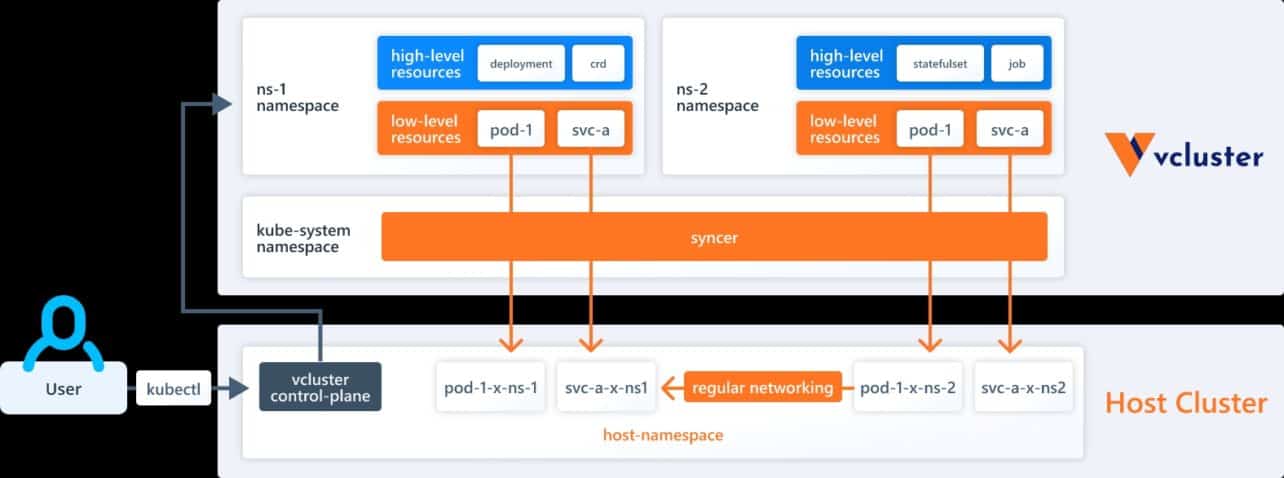Loft Labs has made its vcluster software open source. With this virtualisation software, it is possible to let multiple tenants share the same Kubernetes cluster.
Loft Labs decided to make the software open-source because it hopes that the Cloud Native Computing Foundation (CNCF) will eventually adopt the software and advance it even further. CNCF is a foundation dedicated to improving the capabilities of open-source container technology, particularly Kubernetes.
Multiple tenants on a single Kubernetes cluster
Within the committee, there is already a special interest group for enabling multiple tenants on a single Kubernetes environment. This is, in fact, an existing problem within Kubernetes. The platform was initially set up with the idea that many applications would run on a relatively small number of clusters. However, sharing these clusters with multiple application developers without the need for additional manual intervention has not yet been fully resolved.
For now, Kubernetes clusters are generally deployed for a single tenant. This is because many developers prefer to have their own platforms where they do not have to take into account the performance impact of other applications running on the clusters. However, from a cost perspective, it can be more efficient if multiple clusters run virtualised on the same hardware.
This is where Loft Labs wants to make a difference. The company’s virtualisation software allows each application to run isolated in a multi-tenant environment. In addition, IT teams can put virtual clusters into sleep mode when not in use. This, according to Loft Labs CEO and founder Lukas Gentele, should lead to savings in infrastructure costs. To date, Loft Labs’ vcluster software has been deployed by more than 90 companies in production environments.

Kubernetes 1.21
Earlier this month, version 1.21 of Kubernetes was released. The new version of the container management software offers support for CronJobs, a functionality to schedule regular operations. There is also support for network stacks combining IPv4 and IPv6, among other improvements.
